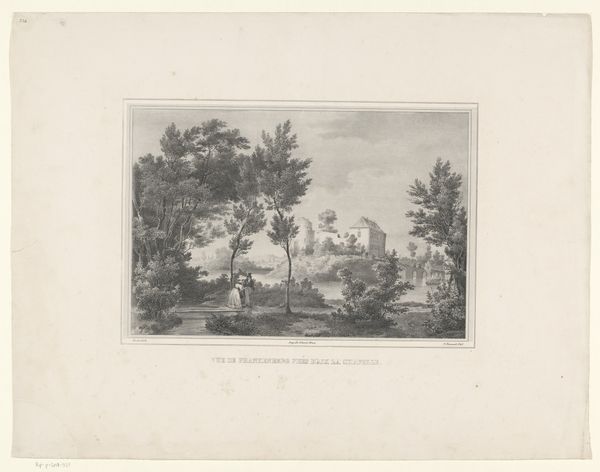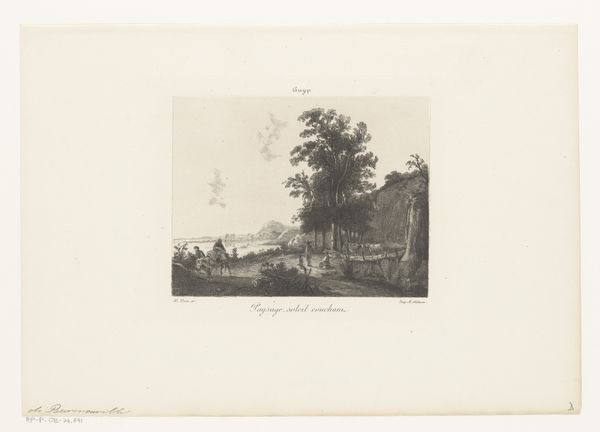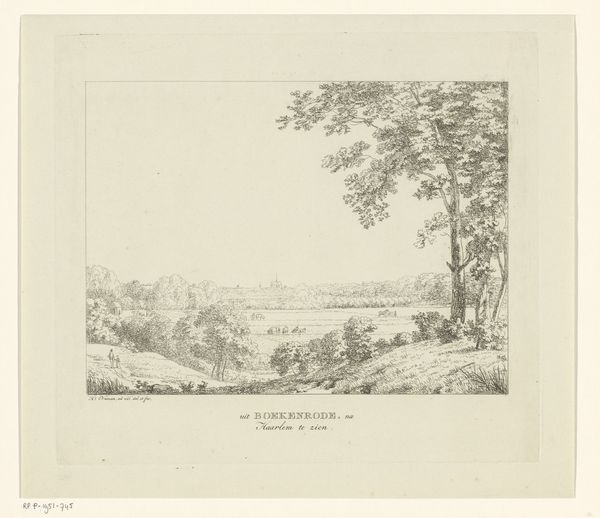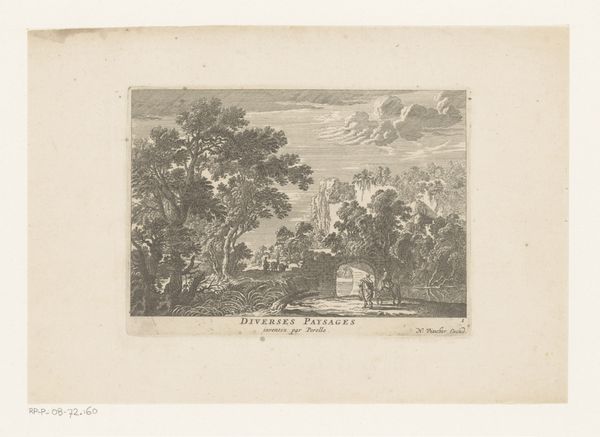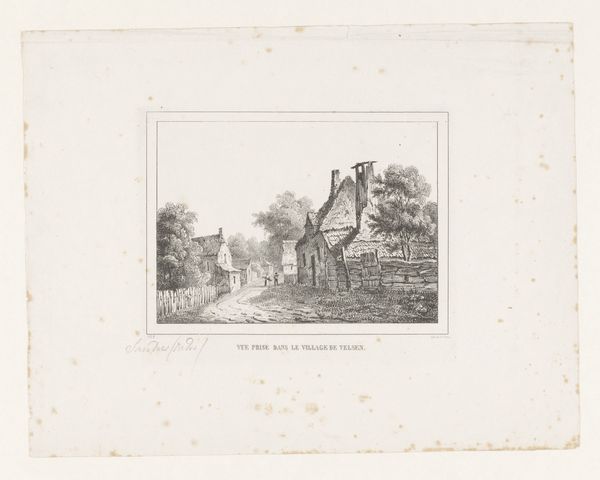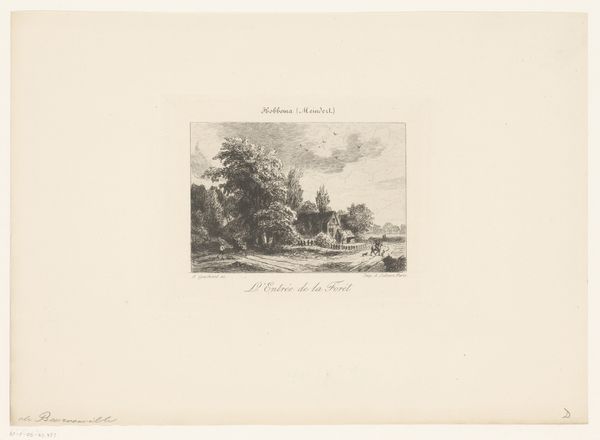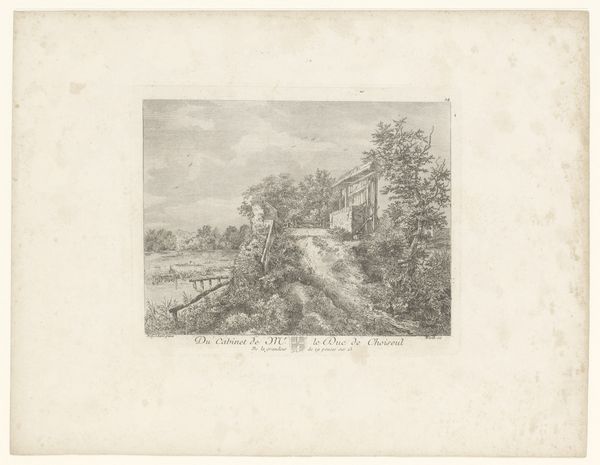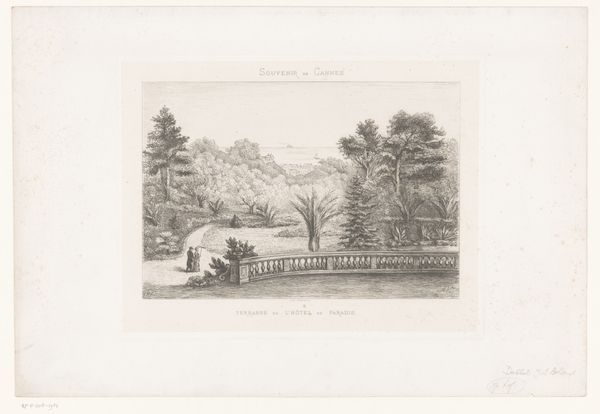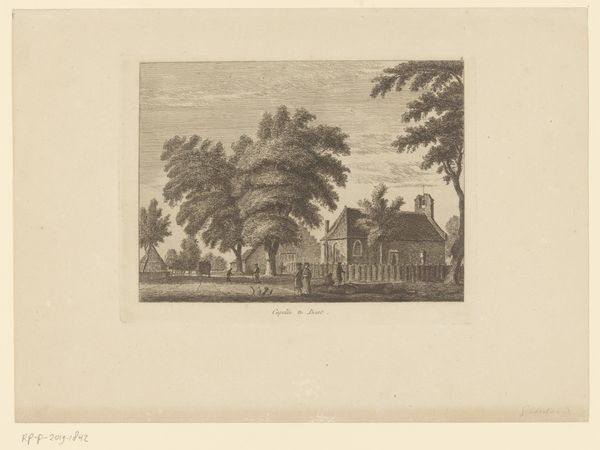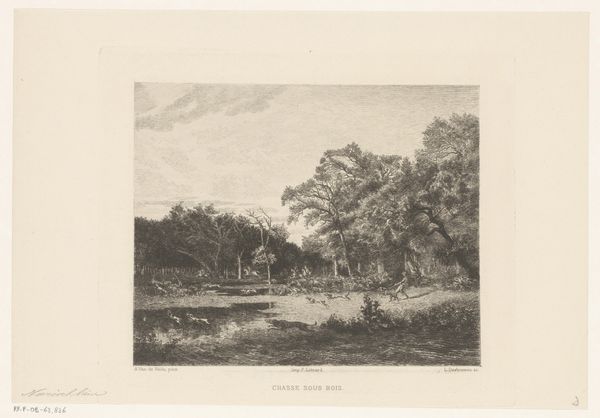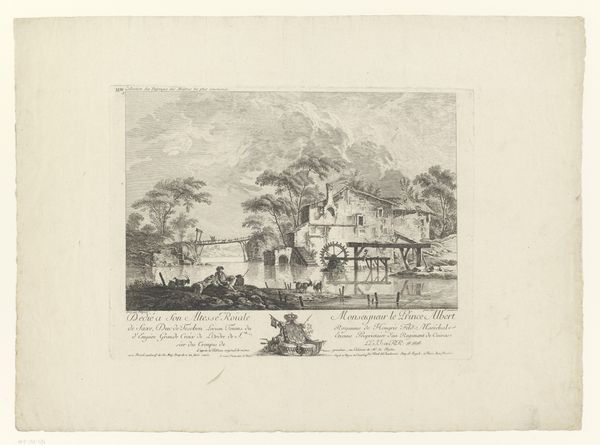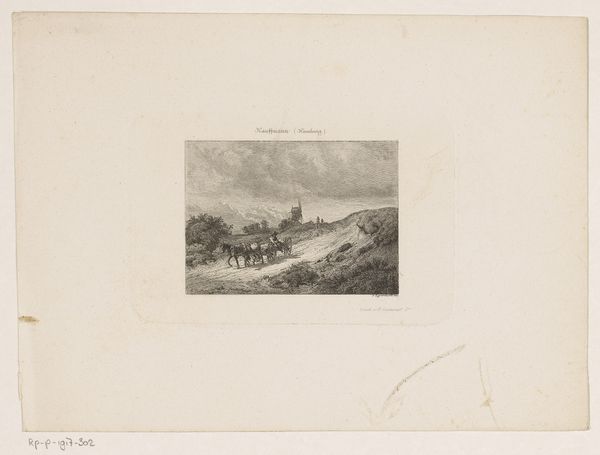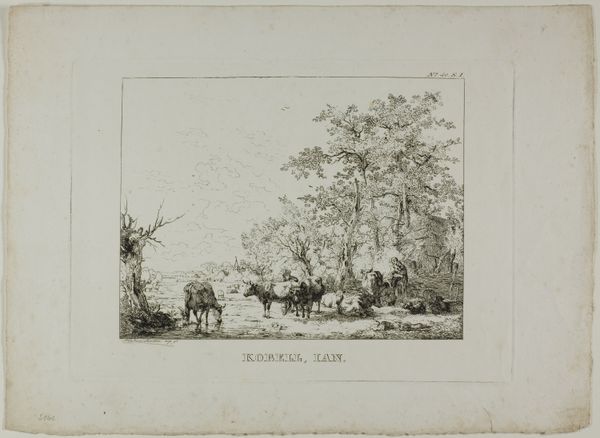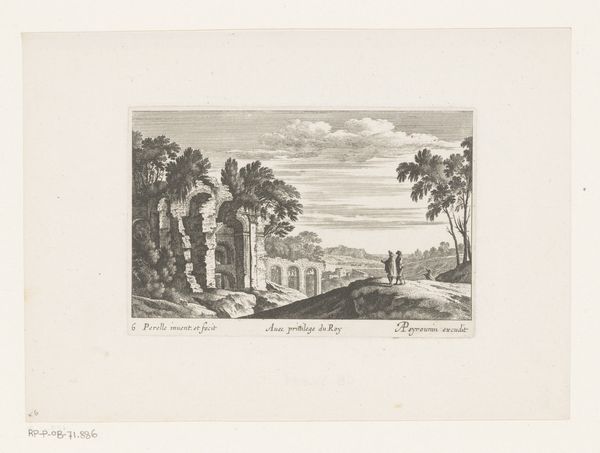
drawing, print, engraving
#
drawing
# print
#
landscape
#
classical-realism
#
romanticism
#
line
#
engraving
Dimensions: height 225 mm, width 260 mm
Copyright: Rijks Museum: Open Domain
This etching, "Koepel van Voorland," was created by Hermanus Numan in the late 18th or early 19th century. It’s made using a technique that allowed for the relatively easy reproduction of images, a real boon in an era before photography. Consider the lines, so precisely bitten into the metal plate and then transferred to paper. This wasn't about the direct touch of the artist's hand, as in a painting, but rather a managed, repeatable process. Look closely and you can see how the varying densities of line create the impression of light, shadow, and depth. The etching medium itself speaks to a society increasingly interested in dissemination of information and aesthetics. While seemingly a straightforward landscape, the print is also an artifact of its own making, a testament to the power of reproducible media. It reminds us that even seemingly simple images are tied to wider social issues of labor, politics, and consumption, reflecting the changing landscape of art and society.
Comments
No comments
Be the first to comment and join the conversation on the ultimate creative platform.
